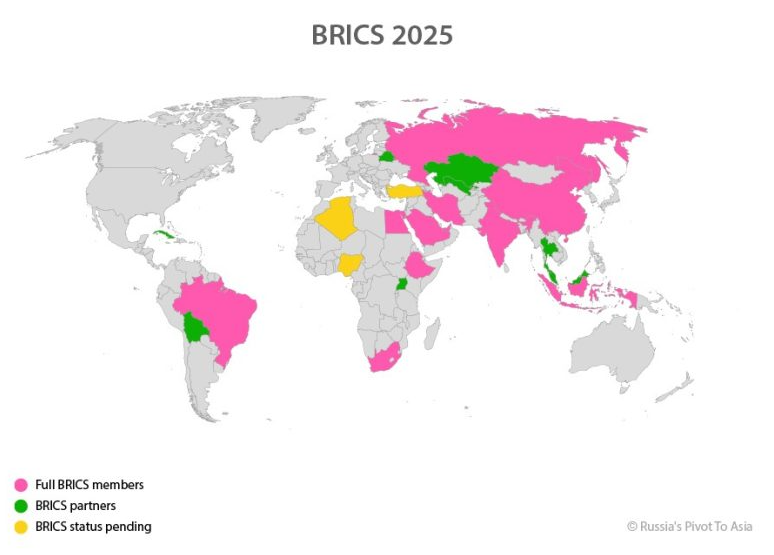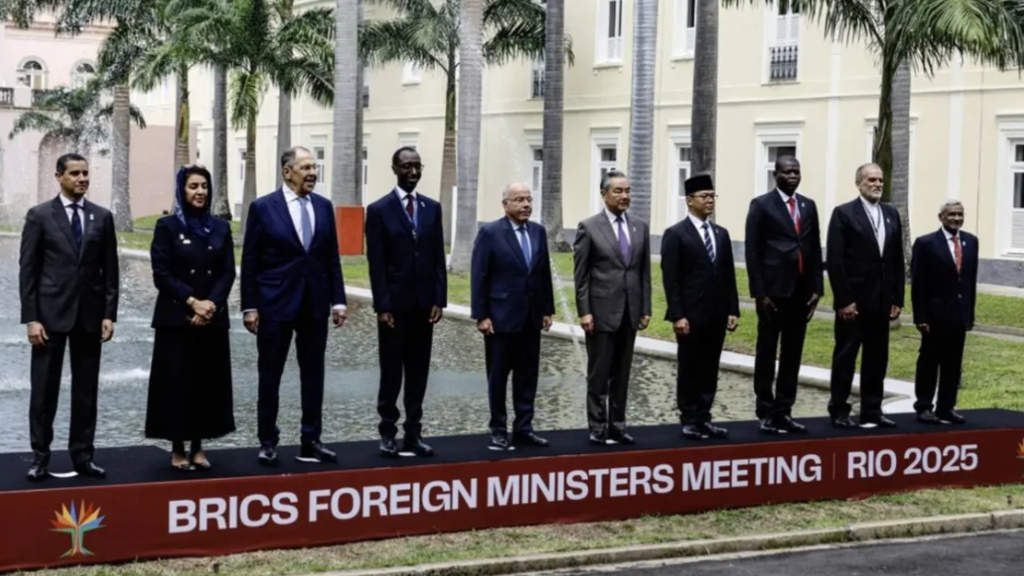The 2025, Brazil-chaired meeting of BRICS Foreign Ministers has been taking place in Rio de Janeiro, with Russian Foreign Minister Sergey Lavrov attending.
The ministers have been holding an in-depth exchange of views on a broad range of current international issues and collaboration. They also discussed further BRICS cooperation and preparations for the 17th BRICS Summit scheduled for 6-7 July, also to be held in Rio.
This particular session was notable as for the first time, it included representatives of BRICS partner states. Including these, the BRICS now includes as full members, Brazil, Russia, India, China and South Africa, together with Egypt, Ethiopia, Indonesia, Iran, and the UAE. Partner States include Belarus, Bolivia, Cuba, Kazakhstan, Malaysia, Thailand, Uganda, Uzbekistan, and Nigeria.
The Russian Foreign Ministry issued a statement at the beginning of the meetings, saying that: “Russia prioritises the strengthening of BRICS strategic partnership. With the ongoing transformation of the international situation, Russia sees the BRICS as serving as a true voice of the Global Majority countries, demonstrating a commitment to a fair reform of the global governance system based on equitable and mutually respectful dialogue, a collective approach to problem-solving and a sensible balance of interests.
Our interaction is rooted in the aspiration to create a multipolar, more democratic and representative world order model grounded in international law and respect for states’ sovereign choice of their own development path.

In 2025, Brazil assumed the role of BRICS Chairman. This year’s overarching theme is Strengthening Global South Cooperation for More Inclusive and Sustainable Governance. The Brazilian Chairmanship’s priorities include enhancing BRICS’ role in reforming the UN and its Security Council, the World Trade Organisation, and the international financial system. Key topics include strengthening multilateralism, involving developing countries in global governance processes, assisting with an inclusive and responsible AI management, and addressing climate financing issues.
On 1 January 2025, the Republic of Indonesia joined BRICS as a fully-fledged member. Given the Group’s expansion, including the establishment of a new category of partner states, this year’s objective is to consolidate the cooperation architecture and ensure the full-scale integration of new members in its activities.
It is also intended to continue the work on initiatives launched during Russia’ Chairmanship, including the BRICS Grain Exchange, the Contact Group on Climate and Sustainable Development, and Geological and Investment platforms.
Russia aims to enhance the role of BRICS states in the international monetary and financial system, promote interbank cooperation, facilitate the transformation of the international payments system, and expand the use of BRICS national currencies in mutual trade.
There will be a focus on promoting dialogue on sustainable and equitable development, climate change adaptation, and energy and food security.
The ministers will discuss ways to build up cooperation in healthcare, science and innovation, expand contacts between research centres and higher educational institutions, and develop and introduce advanced technologies.
Strengthening civil society ties and promoting contacts in culture, sports, and youth exchanges remain a high priority task.
Numerous bilateral meetings involving Russia were also held at this event, including meetings with China. We will be covering these tomorrow. To ensure you remain on top of Russia and BRICS development news, please take a complimentary subscription to Russia’s Pivot To Asia here and receive our popular weekly roundup as well as our complimentary regional guides.
Further Reading
BRICS March 2025 PMI 2.8 Points Higher Than The Eurozone As Access To Russian Energy Proves Key

 Русский
Русский













